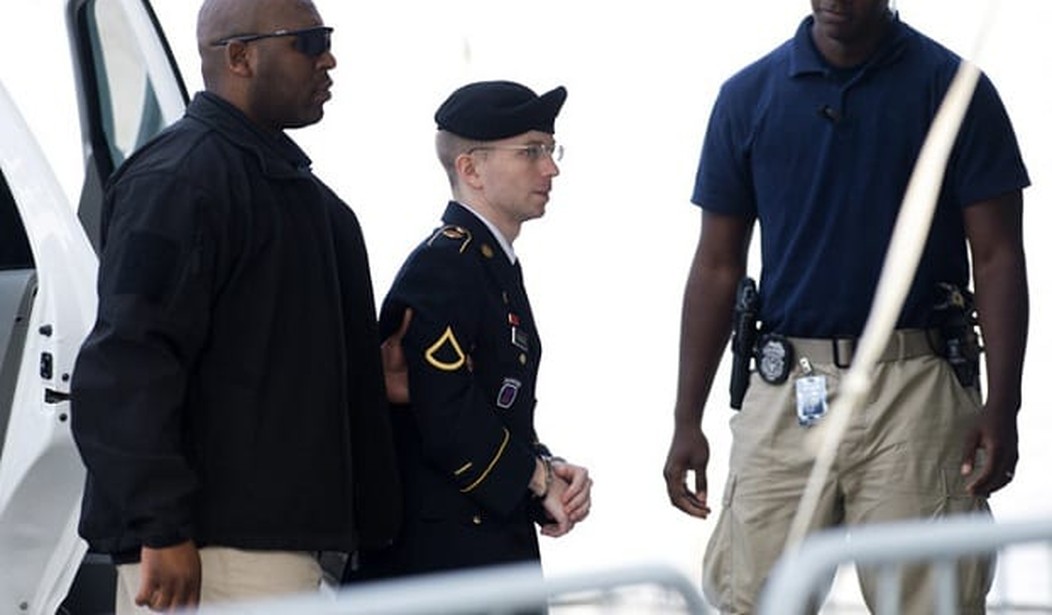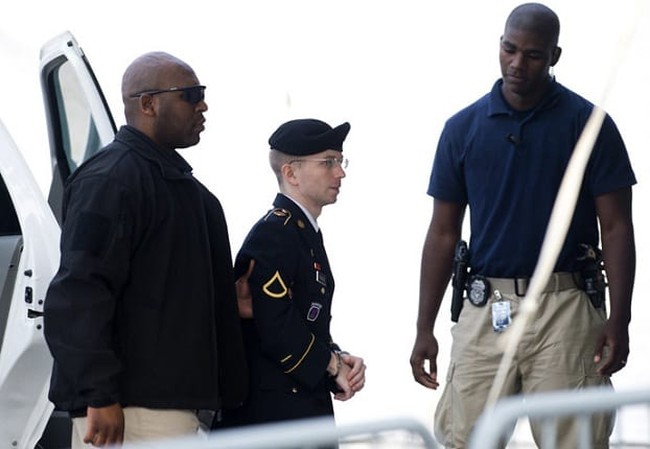It is a rare occasion when an imprisoned felon is given access to the op-ed page of the New York Times. Bradley Manning, who has declared himself, against all biologicial evidence, to be a woman is serving 35 years in federal prison for betraying his country. Yet, in the age of Obama this is the kind of celebrity sought by major US news media for an informed opinion on issues of national import. Go figure.
Manning’s thesis is that the situation in Iraq was caused by insufficient press freedom in the United States and too much secrecy in the military:
However, the concerns that motivated me have not been resolved. As Iraq erupts in civil war and America again contemplates intervention, that unfinished business should give new urgency to the question of how the United States military controlled the media coverage of its long involvement there and in Afghanistan. I believe that the current limits on press freedom and excessive government secrecy make it impossible for Americans to grasp fully what is happening in the wars we finance.
If you were following the news during the March 2010 elections in Iraq, you might remember that the American press was flooded with stories declaring the elections a success, complete with upbeat anecdotes and photographs of Iraqi women proudly displaying their ink-stained fingers. The subtext was that United States military operations had succeeded in creating a stable and democratic Iraq.
When you get past Bradley Manning’s delusions of grandeur, for instance:
Early that year, I received orders to investigate 15 individuals whom the federal police had arrested on suspicion of printing “anti-Iraqi literature.” I learned that these individuals had absolutely no ties to terrorism; they were publishing a scholarly critique of Mr. Maliki’s administration.
(given that young Bradley could not speak or read Arabic, that he was a very low level and low performing intelligence analyst, the idea that he was assigned to “investigate” much of anything is ridiculous and just another example of the psychiatric problems that have finally resulted in his demand to be called “Chelsea”) the statements are simply nuts.
Throughout the War in Iraq, that war was extensively reported upon. As anyone who followed the news from 2003 through 2008 the news was not sugar-coated to please the Bush Administration. If anything, it was heavily weighted towards stories, since proven patently false, that were designed by the media to defeat Bush in 2004 and, that failed, cripple him during his second term. To make the first case, Manning turns to anecdotes:
Among the many daily reports I received via email while working in Iraq in 2009 and 2010 was an internal public affairs briefing that listed recently published news articles about the American mission in Iraq. One of my regular tasks was to provide, for the public affairs summary read by the command in eastern Baghdad, a single-sentence description of each issue covered, complementing our analysis with local intelligence.
The more I made these daily comparisons between the news back in the States and the military and diplomatic reports available to me as an analyst, the more aware I became of the disparity. In contrast to the solid, nuanced briefings we created on the ground, the news available to the public was flooded with foggy speculation and simplifications.
One clue to this disjunction lay in the public affairs reports. Near the top of each briefing was the number of embedded journalists attached to American military units in a combat zone. Throughout my deployment, I never saw that tally go above 12. In other words, in all of Iraq, which contained 31 million people and 117,000 United States troops, no more than a dozen American journalists were covering military operations.
Transparency, guaranteed by a body not under the control of public affairs officials, should govern the credentialing process. An independent board made up of military staff members, veterans, Pentagon civilians and journalists could balance the public’s need for information with the military’s need for operational security.
Reporters should have timely access to information. The military could do far more to enable the rapid declassification of information that does not jeopardize military missions. The military’s Significant Activity Reports, for example, provide quick overviews of events like attacks and casualties. Often classified by default, these could help journalists report the facts accurately.
This is an easy statement to make when you are safe in a fortified compound with access to My Little Pony episodes, or gay porn, or whatever it is that narcissistic sexually confused sociopaths like to watch. It is quite a different matter when you are out there on the sharp end and your life depends on the enemy not having access to your capabilities, intentions, tactics, techniques, and procedures. Reporters are generally free to report what they wish but the military does not have an obligation to provide them with access to classified information in a combat situation.
Manning is no more knowledgeable about press freedom and security than he was about his job or his gender. He’s a pathetic little deviant who will live out the majority of the remainder of his life behind bars. As he should. It is shameful that the New York Times allowed him an outlet for his narcissism.














Join the conversation as a VIP Member